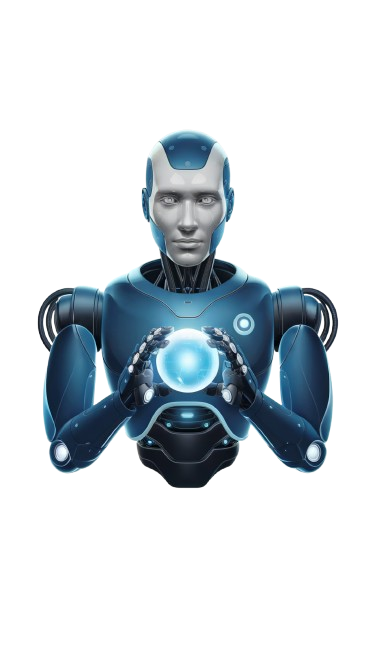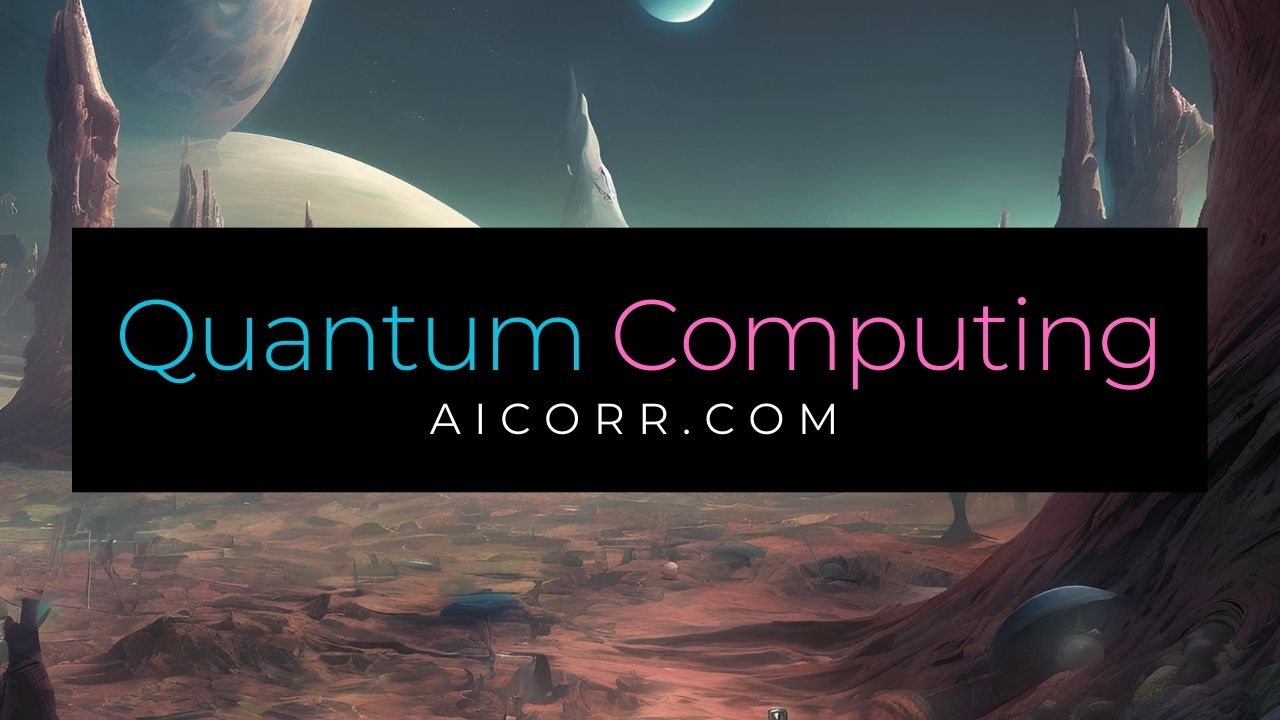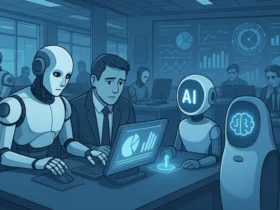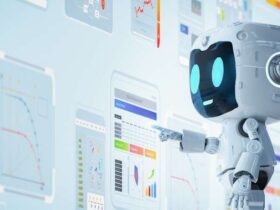So, what is quantum computing? We analyse the key concept of quantum computing, its distinction from classical computing as well as applications, challenges, and the future of quantum computing.
Table of Contents:
Data is being generated and processed at unprecedented rates. As such, conventional computers are sometimes unable to keep up with the complexity of certain calculations. Enter quantum computing, an emerging technology that uses the principles of quantum mechanics to process information in new and incredibly efficient ways. By harnessing the unique properties of quantum mechanics, quantum computers have the potential to solve problems far beyond the reach of classical computers. From speeding up complex calculations to revolutionising fields such as cryptography, medicine, and artificial intelligence. QC is poised to become one of the most transformative technologies of the 21st century.
What is Quantum Computing?
At its core, quantum computing is based on quantum mechanics—a branch of physics that explores the behavior of matter and energy at the smallest scales, such as atoms and subatomic particles. Unlike traditional computers, which store information in binary bits (0s and 1s), quantum computers use quantum bits, or qubits. Qubits are fundamentally different from classical bits because they can exist in multiple states simultaneously, a property known as superposition. Additionally, qubits can exhibit entanglement, a quantum phenomenon where the state of one qubit is instantaneously linked to the state of another, regardless of the distance between them.
By leveraging superposition and entanglement, quantum computers can process a massive amount of information simultaneously, opening new possibilities for computational speed and complexity. Quantum computing is still an emerging field, but as it matures, it is expected to surpass classical computing in specific tasks, transforming industries and scientific research.
Key Concepts in Quantum Computing
Quantum computing is built upon several core principles that set it apart from classical computing.
- Qubits
- In classical computing, bits are the smallest units of information and can only be in one of two states: 0 or 1.
- A qubit, on the other hand, can be in a state of 0, 1, or both at the same time due to superposition. This allows quantum computers to handle an enormous number of calculations simultaneously, increasing their processing power exponentially.
- Superposition
- Superposition is a fundamental concept in quantum mechanics, where particles can exist in multiple states at once.
- In quantum computing, superposition enables each qubit to process multiple possibilities at once, giving quantum computers a parallelism advantage that allows them to solve certain problems faster than classical computers.
- Entanglement
- Entanglement is a phenomenon in which pairs or groups of qubits become interlinked. When entangled, the state of one qubit is directly connected to the state of another, even if they are separated by great distances.
- This property enables quantum computers to perform complex calculations by leveraging correlations between entangled qubits, enhancing computational power and efficiency.
- Quantum Interference
- Quantum interference is used to amplify the probability of obtaining correct answers while canceling out incorrect solutions.
- By carefully managing interference patterns, quantum algorithms can significantly improve accuracy and reduce computation times for specific tasks.
Quantum Computing vs. Classical Computing
While classical computers rely on sequential processing, quantum computers can handle many computations at once thanks to superposition and entanglement. This capability can make quantum computers exponentially faster than classical computers for particular types of problems.
1. Parallelism
Because of superposition, quantum computers can evaluate many solutions simultaneously, whereas classical computers must process each possible solution one at a time.
2. Speed
For specific tasks like factoring large numbers or searching large datasets, quantum computers have the potential to solve problems exponentially faster than classical computers.
3. Efficiency
Quantum algorithms, such as Shor’s algorithm (for integer factorisation) and Grover’s algorithm (for searching databases), showcase the efficiency advantages of quantum computing for tasks that are otherwise highly time-consuming.
Applications of Quantum Computing
As quantum computing technology advances, it is expected to have a profound impact across many sectors. As such, solving problems that are currently impractical for classical computers. Some of the most promising applications are below.
Cryptography
Quantum computing could fundamentally disrupt cryptography. Many modern encryption systems rely on the difficulty of factoring large prime numbers. A task that would be efficiently handled by quantum computers.
This potential has led to the development of quantum-resistant cryptographic algorithms in anticipation of future quantum computers that could break traditional encryption methods.
Drug Discovery and Material Science
Quantum computers can simulate molecules and chemical reactions at a quantum level. A task that classical computers struggle with due to the complexity of molecular interactions.
The ability to simulate chemical processes precisely could lead to breakthroughs in drug discovery, materials science, and even energy production. As such offering researchers insights into molecular structures and interactions that are currently out of reach.
Optimisation Problems
Many industries, including logistics, finance, and manufacturing, rely on solving complex optimisation problems.
Quantum algorithms can process these problems more efficiently, potentially reducing the time and resources required for optimisation. As a result, and leading to substantial improvements in supply chain management, financial forecasting, and product design.
Machine Learning and Artificial Intelligence
Quantum computing can accelerate machine learning algorithms, enabling faster and more accurate data analysis, pattern recognition, and model training.
Quantum-enhanced machine learning could improve applications in image recognition, language processing, predictive modeling, and more.
Climate Modeling and Physics Simulations
Quantum computers could provide the computational power needed to simulate complex systems, such as climate models or physical processes.
By processing vast amounts of data with higher accuracy, quantum computers can contribute to more precise climate predictions and a deeper understanding of natural phenomena.
Challenges in QC
Despite its immense potential, quantum computing faces significant challenges. Let’s see some of the below.
- Qubit Stability: Qubits are highly sensitive to their environment, and even slight disturbances can cause them to lose their quantum state—a phenomenon known as quantum decoherence. Maintaining qubit stability over long periods is one of the biggest hurdles in quantum computing.
- Error Correction: Because of the fragile nature of qubits, quantum error correction is more complex than in classical computers. Researchers are developing quantum error-correcting codes, but implementing them effectively remains challenging.
- Scalability: Building a large-scale quantum computer with enough qubits to tackle practical problems is a major technical hurdle. Current quantum computers are limited in qubit count, and increasing this number without sacrificing stability or accuracy is an ongoing challenge.
- Physical Requirements: Quantum computers often require extremely low temperatures and specialised equipment to maintain qubit stability. These physical and technical requirements make quantum computing expensive and complex to develop and operate.
The Future of QC
The field of quantum computing is still in its infancy. As such with large-scale, fully functional quantum computers not yet widely available. However, rapid advancements in qubit stability, error correction, and scalability are driving the field forward. In the near future, we may see quantum computers that can solve specialised problems. Faster and more efficiently than classical computers. Though they will likely coexist with classical computers rather than replace them entirely.
Looking further ahead, quantum computing has the potential to become a foundational technology. And as a result, transforming fields that require massive data processing and complex simulations. From revolutionising industries such as cryptography and pharmaceuticals to providing new tools for scientific research and climate modeling. Quantum computing promises to unlock solutions to some of humanity’s most challenging problems.
In a Quantumshell
Quantum computing represents a paradigm shift in how we process and analyse information. Quantum computers leverage the principles of quantum mechanics. As a result, they have the potential to solve complex problems that classical computers cannot tackle. Although challenges remain, the potential applications are vast.
And the continued development of QC technology is set to change the landscape of technology, science, and industry. As the field matures, quantum computing will likely play an increasingly central role in shaping the future. And therefore offering unprecedented opportunities to solve problems that define the modern world.












